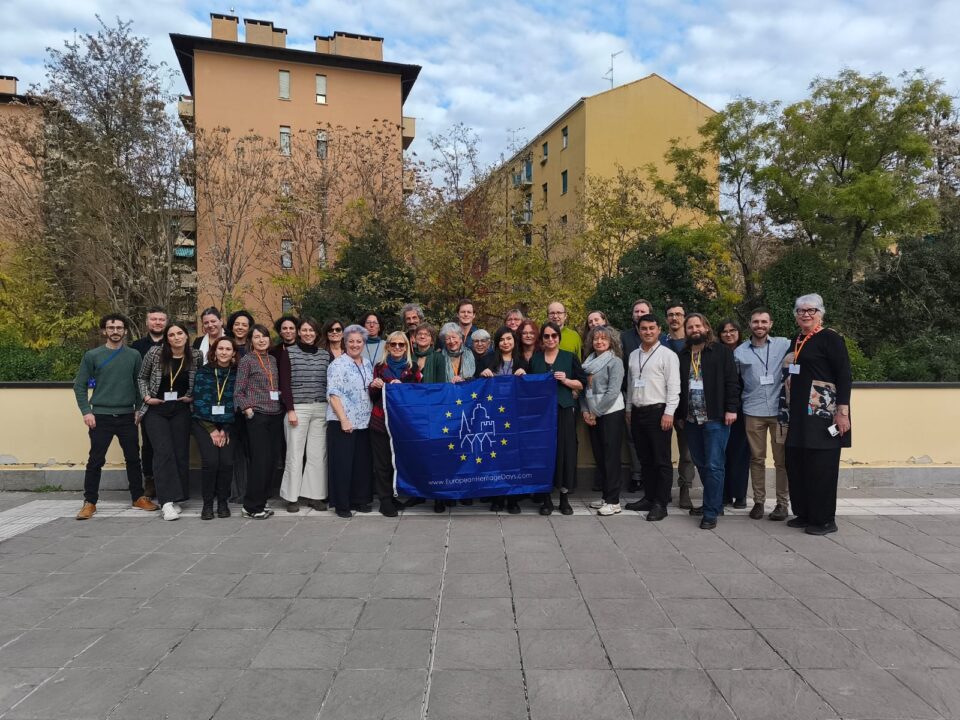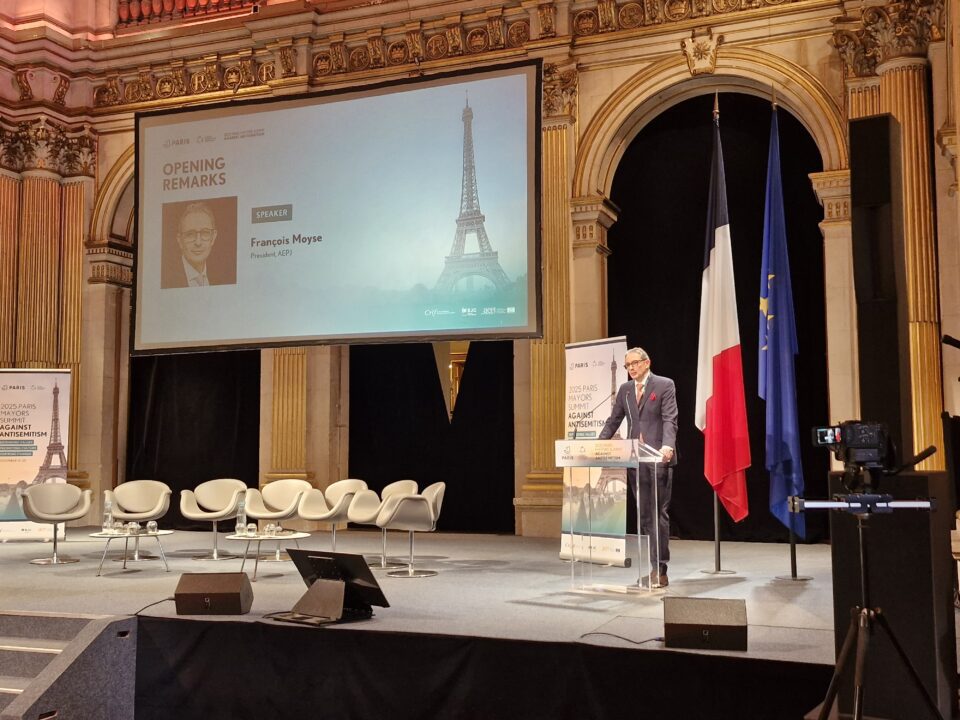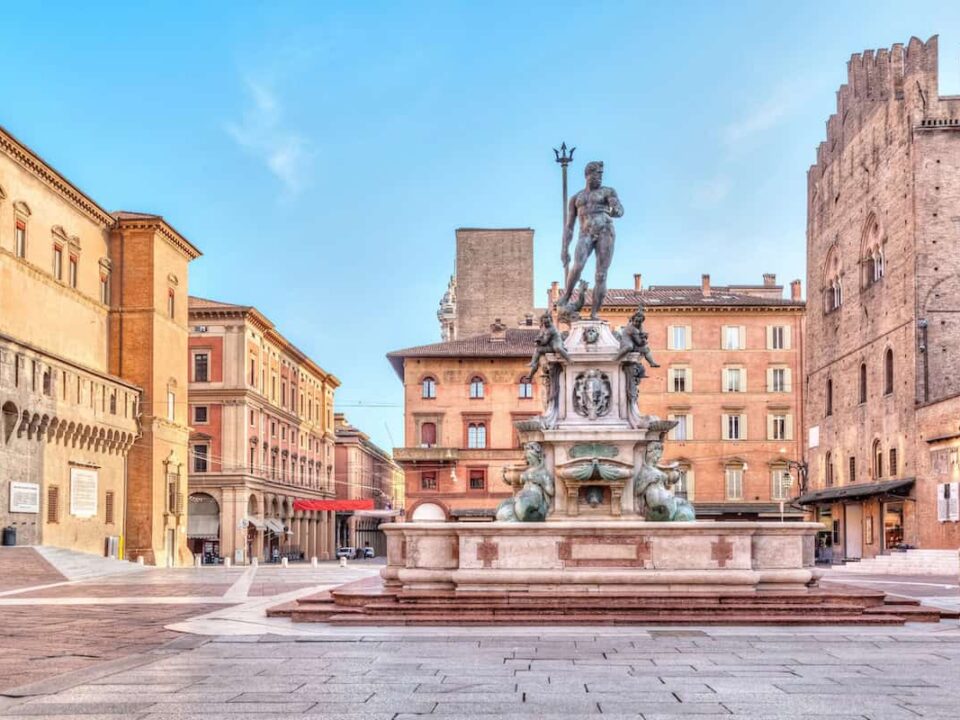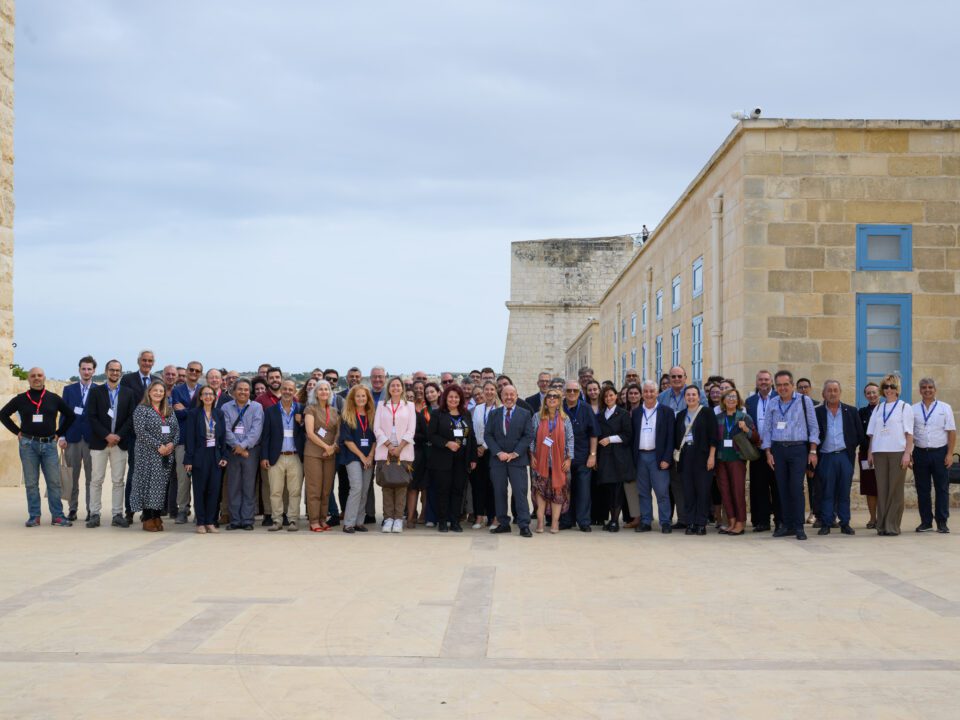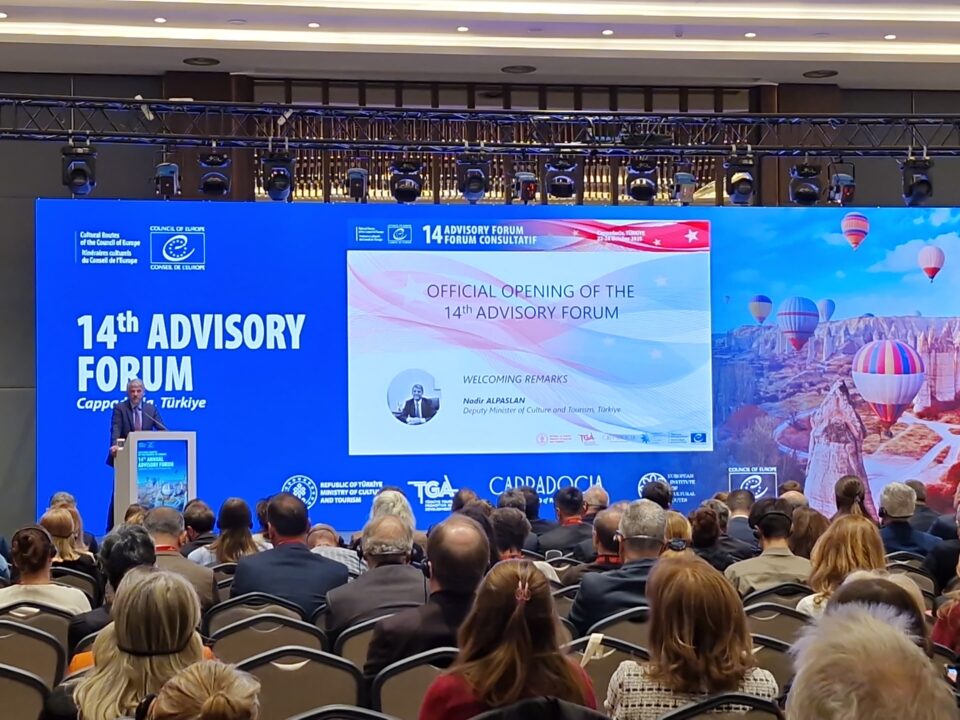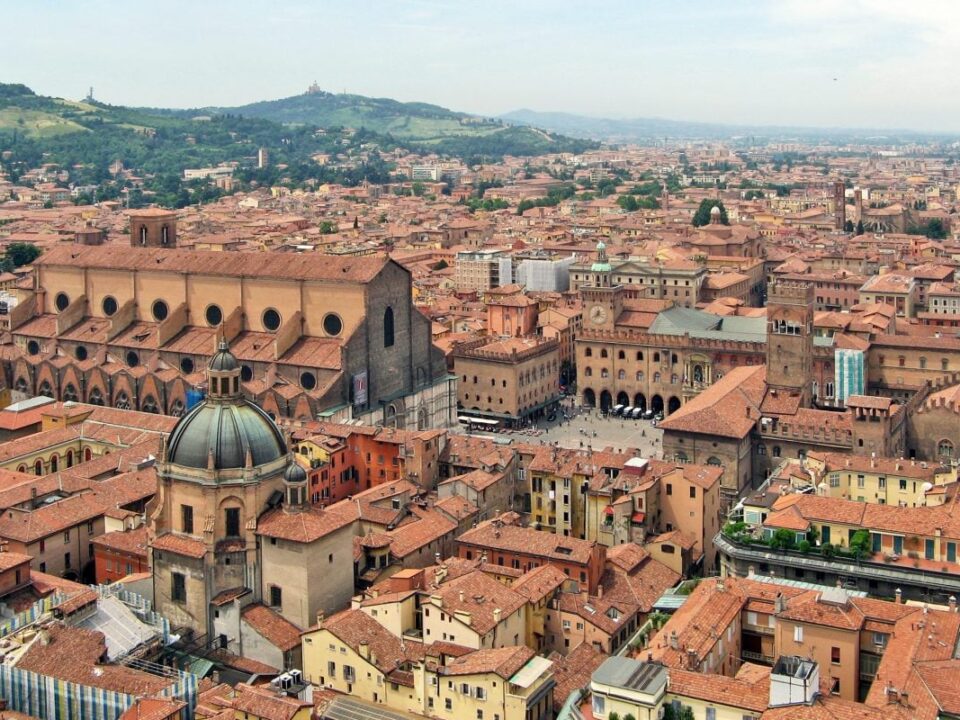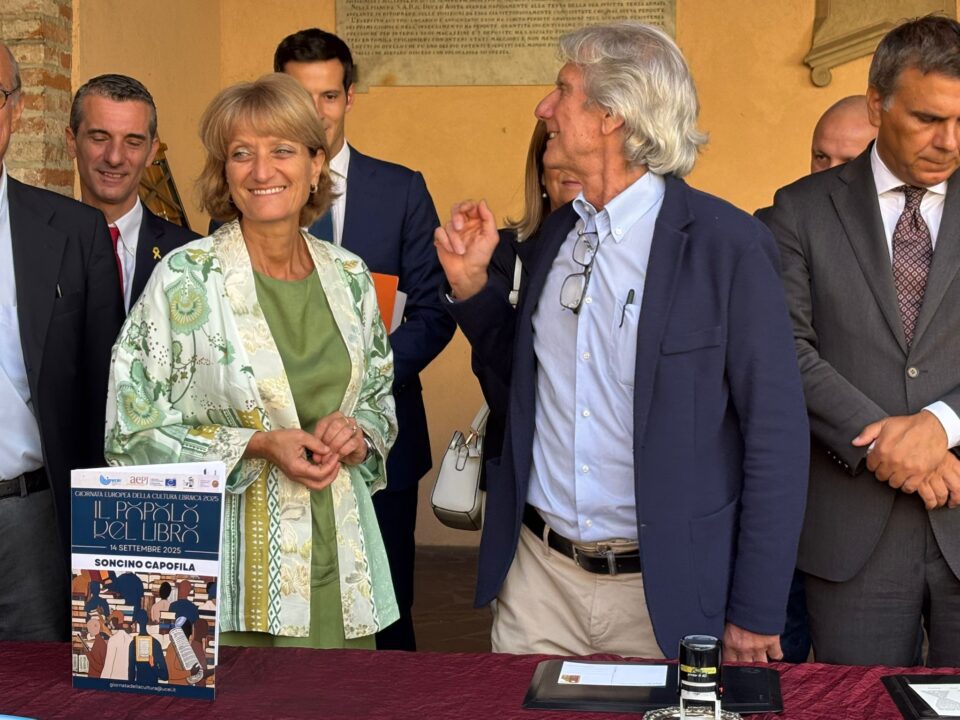- Filter by
- Categories
- Tags
- Authors
- Show all
- All
- AEPJ News
- Andalusia
- Austria
- Azerbaijan
- Balti
- Belarus
- Bendery
- Braunschweig
- Celle
- Chisinau
- EDJC old editions
- EDJC22
- EDJC23
- EDJC24
- EDJC25
- France
- Georgia
- Germany
- Girona
- Hannover
- Hildesheim
- Italy
- Izmir
- Lithuania
- Medieval Route
- Moldova
- National Route
- Orhei
- Padua
- Palaces, Villas and Country Houses
- Poland
- Regional Route
- Rhineland
- Rybnitsa
- Soroca
- Spain
- Thematic Route
- Tiraspol
- Turkey
- Ukraina
- Uncategorized
This month, AEPJ has brought to completion yet another cornerstone of our work: the European Routes of Jewish Heritage Incubator, which this year unfolded in the evocative settings of Bologna and Forlì.
This is a yearly event organised by AEPJ with the support of European Heritage Days for our route managers to network and share their knowledge and experiences in order to better strengthen our network. This year’s edition, ERJH 2025: Interpreting Architecture, Fostering Dialogue for Peace, brought together 37 Jewish heritage professionals who are all working to develop the ERJH across Europe.
Following a week of introductory online sessions, which you can read about here, we opened the in-person programme with a warm welcome in Bologna, where participants were invited to step directly into the city’s rich Jewish history with a guided walk through the old Jewish quarter, including a visit to the Jewish Museum and Synagogue, setting the stage for the days ahead.
On 30 November, AEPJ President François Moyse and Honorary President Claude Bloch were honoured to attend the reopening of the Jewish Museum of Basel in Switzerland.
Just a few days earlier, AEPJ was also represented at a preliminary event by Françoise Elkouby and Jean-Pierre Lambert from Strasbourg.
Housed in a listed building with remarkable wooden elements, the museum has undergone a significant transformation. Under the leadership of President Nadia Guth-Biasini and her talented team, the space has been redesigned into a modern, state-of-the-art institution equipped with innovative exhibition technologies.
During his remarks, the AEPJ President introduced the association and its 20 years of work, emphasising the importance of engaging citizens with Jewish heritage. He aligned with the museum director in underscoring that Jewish culture is not only a heritage of the Jewish community, but a shared European heritage that invites exploration by all.
Paris, 20 November 2025 – The AEPJ participated, with a strong institutional delegation, in the Mayors Summit Against Antisemitism, held at the Hôtel de Ville of Paris under the auspices of Mayor of Paris Anne Hidalgo and organised by the Combat Antisemitism Movement (CAM), CRIF and the European Jewish Congress (EJC). The AEPJ was represented by its President François Moyse, Treasurer Patrick Bikard, Director Victor Sorenssen, Sonja Viličić, Project Lead of Cities Embracing Jewish Heritage, and Uri Bar-Ner, representative of the Kiriaty Foundation, member of the AEPJ and partner in the project Cities embracing Jewish Heritage.
The Summit brought together mayors, municipal leaders, policymakers, researchers and civil society organisations from across Europe and beyond for a full day of high-level dialogue.
This week, the AEPJ successfully completed the full series of online training sessions of the European Routes of Jewish Heritage Incubator 2025: Interpreting Architecture, Fostering Dialogue for Peace. With four rich, in-depth lectures exploring themes at the intersection of Jewish heritage, architecture, memory, education and digital innovation, participants from across Europe took part in a powerful shared learning process that now sets the stage for next week’s in-person programme in Bologna and Forlì.
The Incubator opened with a keynote by Jeremy Leigh (Hebrew Union College – Jerusalem), who invited participants to critically reflect on the relationship between Jewish heritage interpretation and the fight against antisemitism. His session examined how, despite decades of preservation work, material heritage alone cannot shift attitudes unless narratives themselves are intentionally reshaped.
On 29–30 October, the European Association for the Preservation and Promotion of Jewish Culture and Heritage (AEPJ) took part in the seminar “Malta in the Cultural Routes of the Council of Europe”, a landmark gathering that brought together heritage experts, cultural operators and institutional representatives to strengthen the visibility of the Cultural Routes programme in Malta.
Organised under Malta’s Presidency of the Committee of Ministers of the Council of Europe (May–November 2025), the seminar fostered rich exchanges and new synergies among European cultural stakeholders. For the AEPJ, it was a valuable occasion to showcase its flagship initiatives — including the European Jewish Routes, the European Days of Jewish Culture, and Cities Embracing Jewish Heritage — while exploring new ways to collaborate within Malta’s vibrant cultural scene.
From 22 to 24 October 2025, the 14th Annual Advisory Forum on the Cultural Routes of the Council of Europe is being held in Cappadocia, Türkiye, under the theme “Cultural Routes of the Council of Europe and Landscapes: Advancing Heritage Protection through Cultural and Sustainable Tourism.” The event gathers representatives of the 49 certified Cultural Routes of the Council of Europe, governmental authorities from the 43 member States of the Enlarged Partial Agreement (EPA), as well as cultural heritage experts, academics, and practitioners from across the continent.
Organised by the EPA in collaboration with the Ministry of Culture and Tourism of Türkiye, the Türkiye Tourism Promotion and Development Agency, the European Institute of Cultural Routes, and with the support of the local authorities of the Cappadocia region, the Forum provides a unique platform for exchange and reflection on how Cultural Routes can contribute to the protection of Europe’s diverse landscapes through sustainable and inclusive tourism practices.
The 2025 edition of the European Routes of Jewish Heritage (ERJH) Incubator will take place from 19–21 November in Bologna, hosted by the University of Bologna and ATRIUM—Architecture of Totalitarian Regimes of the 20th Century in Europe’s Urban Memory. This seventh edition, supported by the European Union and the Council of Europe, will focus on how interpreting Jewish architectural heritage can foster dialogue for peace and counter hate speech, xenophobia and antisemitism.
Through both online and in-person sessions, participants will explore architecture’s role as a vessel for memory and resistance. The program includes lectures and workshops led by international experts such as Jeremy Leigh, Shelley Hornstein, Jack Shepherd and Alessia Mariotti, addressing themes from digital memory to sustainable heritage governance.
As this year’s European Days of Jewish Culture (EDJC) carry into October, we would like to take a moment highlight the successes garnered by two countries so far.
Firstly, the inauguration of the EDJC in Soncino held special symbolic weight, as the town is renowned as one of Italy’s most important centres of Hebrew printing during the Renaissance. Hosting the opening here highlighted the theme of Jewish heritage as a “people of the book.” The event featured the presence of EDJC manager, Alina Marincean, and of AEPJ General Secretary and President of UCEI, Noemi Di Segni, who emphasized the cultural and historical significance of Soncino’s legacy.
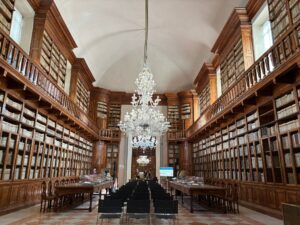
Equally notable was Mantova, home to an impressive Jewish book collection, carefully curated and exhibited by the dedicated staff of the Library of Mantova, further enriching Italy’s celebration of Jewish heritage.

